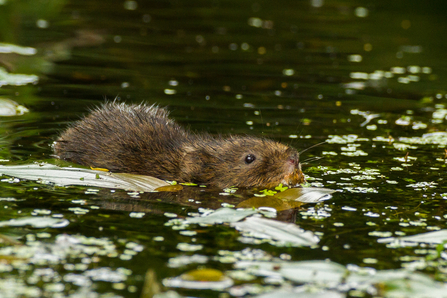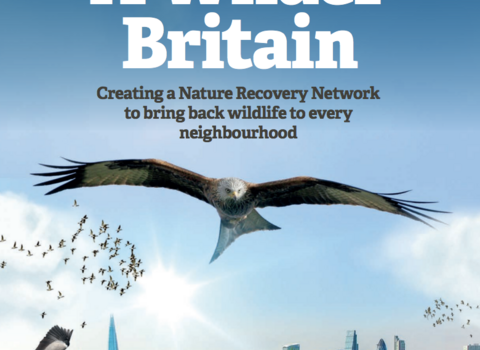Environmental organisations across the country are awaiting the announcement of a draft bill package in Parliament that will form the basis of a new Environment Act, something the Government made a commitment to in its 25 Year Plan for the Environment. Ahead of the announcement, representatives from The Wildlife Trusts, including Suffolk Wildlife Trust’s chief executive, Julian Roughton and hedgehog officer, Ali North will meet with MPs at a Parliamentary reception sponsored by Caroline Lucas of the Green Party. The reception will showcase the work of The Wildlife Trusts and provide an opportunity to call on MPs to ensure a new Environment Act features the protections nature needs to recover.
It's increasingly evident that wildlife needs more help. Birds, insects, mammals, plants and trees are struggling to survive with shrinking and fragmented habitats and, for many species, a growing lack of suitable food sources. At the beginning of November, a landmark report from WWF highlighted a staggering 60% decline in global wildlife populations between 1970 and 2014. The report's rallying cry is extremely timely, coming as politicians are thinking about new laws governing agriculture, fisheries and the environment.
The Wildlife Trusts are calling for the new Environment Act to feature:
- Nature Targets: legal targets for nature's recovery that politicians must ultimately achieve and regularly report on progress towards e.g. safer air to breathe in our towns and cities.
- A Nature Recovery Network: a joined-up network of habitats that provide enough space for wildlife to recover and for people to thrive.
- A Nature Watchdog: an independent body to help people challenge bad decisions made by Government and local authorities, which have a negative impact on wildlife and our natural environment.
Suffolk Wildlife Trust's support of an ambitious new Environment Act sits under the umbrella of its campaign for a Wilder Suffolk, launched by the charity at its AGM on 3 November. Here, hedgehog officer Ali North urged the audience to make an appointment to talk to their MP about the new Environment Act and stressed that the organisation and its supporters have an unprecedented opportunity to feed into new environmental protections that must help wildlife recover on land and at sea. The Trust is far from alone in calling for this. As part of the Greener UK coalition, made up of 13 leading environmental organisations including The Wildlife Trusts, RSPB and WWF, it is collectively representing the priorities of over 8 million members.
Kerry Stranix, campaigns manager at Suffolk Wildlife Trust said: 'It's impossible to overstate the importance of this moment. The groundswell of public awareness for environmental issues, such as single use plastics and palm oil, coupled with the opportunity we have now to feed into a new Environment Act means we have a duty to do all we can as an organisation to ensure strong and ambitious protections. It's as relevant in Suffolk as anywhere and the Trust is lucky to be supported by many thousands of members who will join us in speaking up for wildlife.'
Ali North, hedgehog officer at the Trust is championing the cause and added: 'This is a once in a generation opportunity to have our say on the future for wildlife in Suffolk and across the country. I'm inspired everyday by people I meet who are making a real difference for wildlife where they live and will do all I can to ensure our representatives in Parliament recognise how important a healthy environment and abundant wildlife is to their constituents.'


